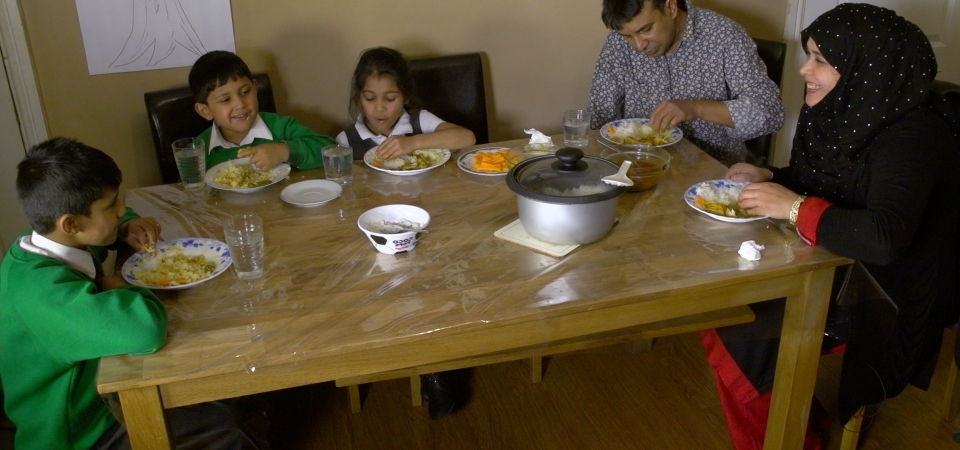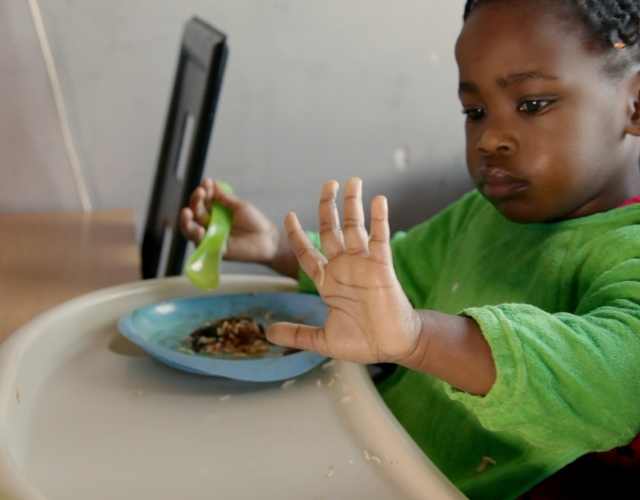Creating Relaxed Mealtimes
Children are more likely to accept and enjoy a wide range of food when they associate mealtimes with pleasure - but having a child who is not eating well can make them stressful experiences for both parents and children. While we can’t expect every family mealtime to be perfect, there are things we can as parents to help them be an enjoyable and relaxed experience for everyone as much of the time as possible.
Eat together
Children learn from seeing their parents and other family members eating and enjoying a wide range of healthy foods. Make it part of your regular daily routine to sit down for meals together – whether it’s round a table or spreading a cloth on the floor.
Avoid grazing
If your child has too many snacks or drinks between meals, it will affect their appetite and with it their interest in eating at mealtimes – so limit eating to 3 meals (including breakfast) and 2 healthy snacks a day.
Screen-free zone
Keep distractions like TV, phones and other screens turned off – so that mealtimes can be sociable occasions when you chat as a family.
Keep the focus off what your child is (or isn’t) eating
Create a relaxed atmosphere by showing an interest in what everyone has been doing, smiling and modelling enjoyment of eating – rather than concentrating on getting your child to eat. Some families find it helpful to make cards with different questions on to get the conversation going at mealtimes – taking it in turns to answer questions such as ‘What’s your favourite way to spend a day?’
Make mealtimes fun
Involve children in planning the meal, preparing food, laying the table, making name cards – whatever their age, children will be more interested in a meal if they have been part of creating it. Young children enjoy arranging food in patterns, for instance arranging pieces of vegetables to make a face on their plate.
Go at their pace
Children tend to eat more slowly than adults, so not rushing them through the meal helps to reduce stress for everyone. At the same time, forcing young children to stay at the table for longer than they can manage is no fun for anyone and may lead to them associating mealtimes with pressure.
Offer choice – between healthy alternatives
As children grow, it’s a normal part of development for them to test out their power. Food can become a way of children exerting control – by refusing to eat what they are given. Giving them some control over what they’re eating by providing a choice can avoid mealtimes becoming a battle of wills. For instance, put out two or three different kinds of vegetables in bowls on the table and let children serve themselves.
Praise and encouragement – with a light touch
Although it’s helpful to keep the main focus of conversation off food – especially if your child’s eating has become a source of tension – gently praising them for trying new foods or commenting on how much you are enjoying eating together helps to create a positive atmosphere. And be aware of appreciating other family members too rather than just directing praise at the child you’re concerned about - so they don’t feel all the attention is on them.

Getting your baby into healthy eating habits – as well as the rest of the family




